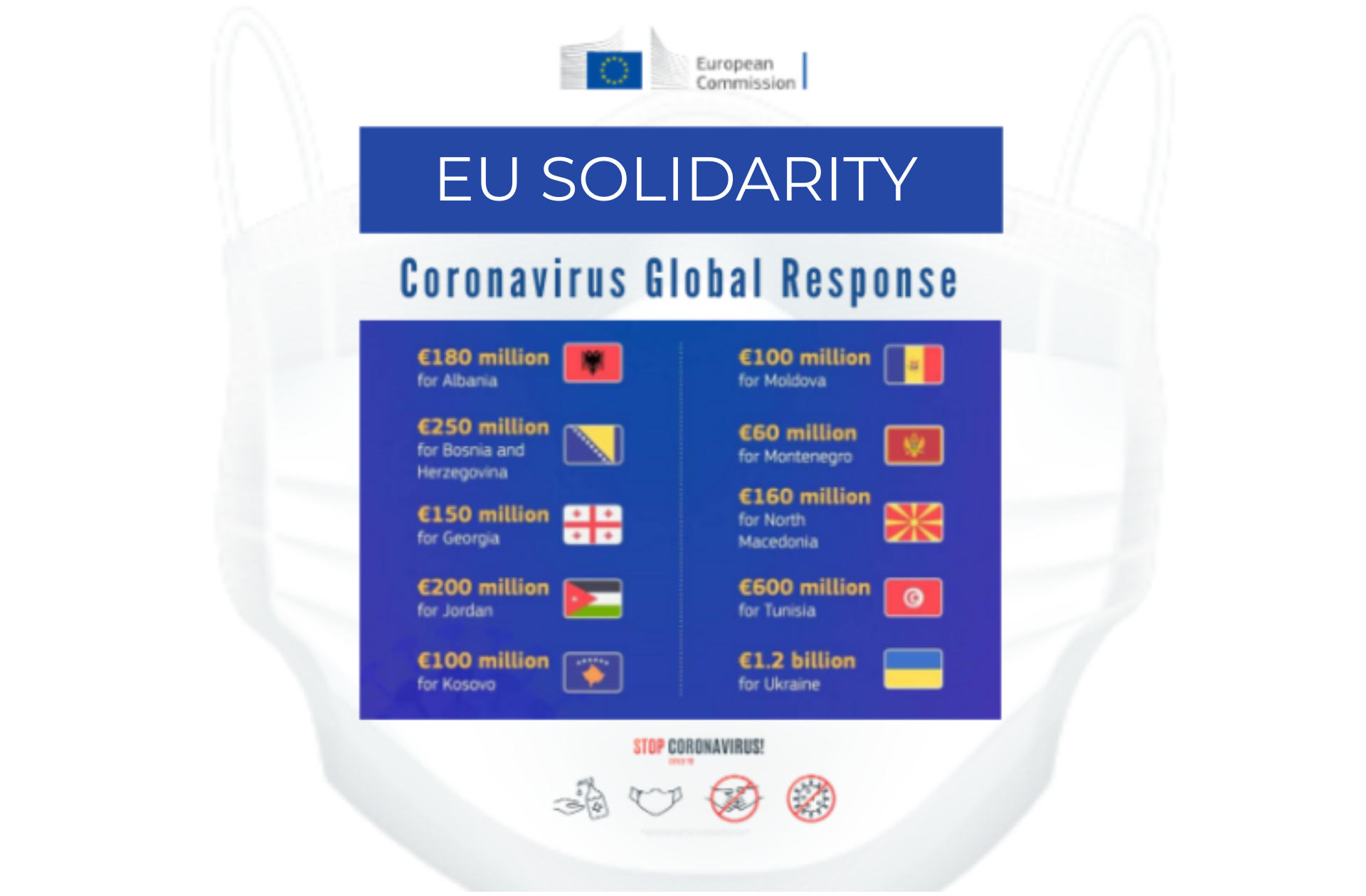The European Commission adopted a new proposal for 3 billion euros package as macro-financial assistance for ten enlargement and neighbourhood countries, to help them curb economic risks caused by the coronavirus outbreak. This assistance will help ensure macroeconomic stability and protection for citizens and businesses during the crisis.
This proposal is part of the EU’s Team Europe strategy to support partner countries in combating the coronavirus outbreak and it demonstrates EU solidarity with these countries during the ongoing crisis. It is based on preliminary estimate for financing needs. A total of 160 million euros are earmarked for North Macedonia, with the following financial breakdown for other countries: Albania – 180 million euros; Bosnia and Herzegovina – 250 million euros; Georgia – 150 million euros; Kosovo – 100 million euros; the Kingdom of Jordan – 200 million euros; Moldavia – 100 million euros; Tunisia – 600 million euros; Ukraine – 1.2 billion euros, and Montenegro – 60 million euros.
The macro-financial assistance funds will be made available for 12 months in the form of loans with highly favourable terms and are intended to help these countries address their immediate, urgent financing needs. They should contribute to enhanced macroeconomic stability and allocation of resources for protection of citizens and mitigation of negative socio-economic consequences of the coronavirus pandemic.
This instrument remains open to other countries that experience difficulties in relation to payment balance.
After the proposal is adopted, the European Commission is prepared to disburse the first instalment immediately after adoption of the decision on macro-financial assistance and after signing the memorandum of understanding with each country. The second instalment could be disbursed in the fourth quarter of 2020 or the first half of 2021, provided that measures are timely implemented.
This macro-financial assistance is part of the EU’s broader engagement with enlargement and neighbourhood countries in the form of crisis response instrument.
In order to benefit from macro-financial assistance, the countries need to meet certain political preconditions in regard to respect for democratic principles, human rights and the rule of law.
In addition to macro-financial assistance, the EU supports neighbourhood countries and the Western Balkans through several other instruments, including humanitarian aid, budget support, thematic programmes, combined facilities and guarantees from the European Fund for Sustainable Development, all intended to support investment in sectors that are most affected by the coronavirus pandemic.
